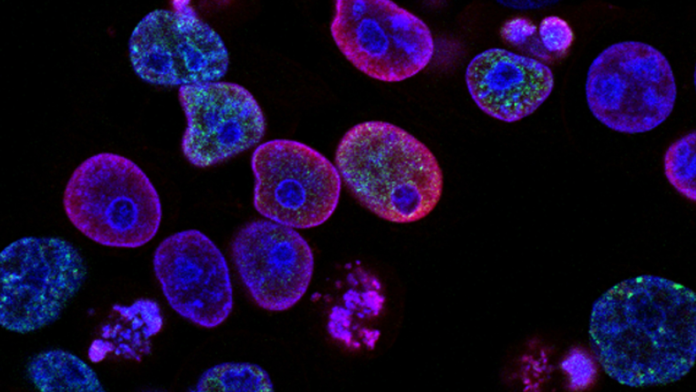The presence of cancer in the lymphatic system is often determined by analyzing blood or bone marrow samples. In 2020, Prof. Dr. Peter Krawitz from the University of Bonn led a research team showing that AI improves cancer diagnosis of leukemias and lymphomas.
Compared to previously established processes, the new AI-powered tech uses the potential of all measurement values and increases the speed and objectivity of the analyses. The team has further developed the freely accessible machine learning method to benefit even smaller laboratories. The research showing that AI improves cancer diagnosis for B-cell lymphomas and related leukemia has been published in the journal “Patterns.”
Swelling lymph nodes is a typical symptom of malignant B-cell lymphomas and related leukemias, weight loss, fatigue, fevers, and infections. When a doctor suspects cancer of the lymphatic system, the physician takes a bone marrow or blood sample for testing in specialized laboratories. At present, labs use flow cytometry where the blood cells flow past measurement sensors at high speed to test cancer. During diagnosis, detecting and accurately characterizing pathological cells is important where the lab technicians can detect cell properties depending on their shape, structure, or coloring.
Read more: Research shows an upwards trend in Data and Artificial Intelligence Salaries
The flow cytometry method generates enormous data; over 50,000 cells are measured per sample. For data analysis, they have to plot the expression of the markers used against each other, where doctors have to compare about 150 two-dimensional images for 20 markers. Krawitz and the bioinformatician Nanditha Mallesh and Max Zhao studied how they can employ artificial intelligence to analyze cytometry data. The team trained the AI with over 30,000 data sets from patients with B-cell lymphoma.
“AI takes full advantage of the data and increases the speed and objectivity of diagnoses,” says lead author Nanditha Mallesh. Specialists from Munich Leukemia Laboratory (MLL), the Charité – Universitätsmedizin Berlin, the University Hospital Erlangen, and the Bonn University Hospital institutions examined the results of AI. Researchers have crafted this solution as open-source software. The free accessibility of software and raw data ensures that small labs can use it. The AI can learn the specifics of the new laboratory during a short training phase and then draw on knowledge derived from thousands of data sets.
“With Hemo, we want to enable the exchange of anonymized flow cytometry data between laboratories and in this way create the conditions for even higher quality in diagnostics,” says Dr. Hannes Lüling.
The team sees enormous potential in this technology. Therefore, the researchers also want to collaborate with significant analytics equipment and software manufacturers to further advance the use of artificial intelligence. For example, in B-cell lymphomas, labs also collect genetic and cytomorphological data to confirm the diagnoses. In principle, the artificial intelligence software can also be helpful for the diagnosis of rheumatic diseases, which are often also based on flow cytometric data.


